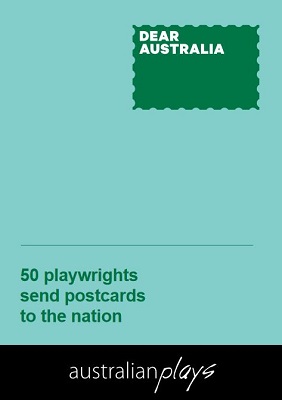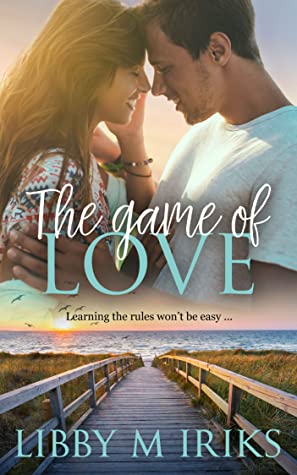AustLit
In the midst of a global pandemic, AustLit seeks, as always, to record for posterity.
How do you frame this, when the events are ongoing, in a way that makes sense to both an endless present and an unknown future?
AustLit's role is to collect, to record, to organise information—we do this for both the present and for posterity. How people will use this information in a decade, or two, or three, we cannot know when we record it. But we can know that here and now is a time that needs to be recorded.
This page is a guide to AustLit's tracking of COVID-19 across the Australian arts sector during 2020, 2021, and 2022.
It is also an invitation to you to contribute information about works and organisations that have been created or affected by the COVID-19 pandemic.
Originally created in July 2020, it has changed as the conditions and consequences of the pandemic change. The project was substantially updated and reframed in June 2022.
AustLit has created the subject 'COVID19' within the database to track works that are about the virus or its impact on the Australian arts sector, or that are written as a direct response to the pandemic. The data remains within AustLit's broader scope of works of creative and life writing, as well as critical material on Australian writing and on the development and production of Australian creative works.
The data includes creative works (from individual poems to broader creative projects inspired by the pandemic) and works of criticism or journalism, including coverage of the impact of the virus on the arts sector.
For more details on accessing the data and on specific types of coverage, see below.
Not all references to the COVID-19 pandemic are necessarily included in the dataset. Works tagged with the 'COVID19' subject are either about the pandemic and its effects in a direct and significant way or their conditions of production are a direct creation of the pandemic; passing references to the virus or the pandemic do not qualify for inclusion.
An example of inclusion: Melbourne-based publishing company Black Hare Press released a series of anthologies across the initial period of lockdown: called Lockdown, they were variously themed as horror, fantasy, science fiction, and so on. The works were not necessarily about COVID-19 (although a number of them drew their themes from isolation and disease), but the conditions of their publication were directly tied to the pandemic and the resultant lockdown.
An example of exclusion: a number of journal issues make reference in their editorials to the difficulty of producing critical work in a time of great uncertainty—and rightly so. But the issue itself is not necessarily engaging with the pandemic beyond that reference, and while the conditions of publication were made difficult by the pandemic, they were not created by it. As such, the issue would not be included in this dataset, although some of its contents might be.
Works are selected and tagged manually.
 |
Writing the Virus |
|
Explore a range of literary works—from novels to picture books—on the subject of the COVID-19 pandemic, including BlackWords works. |
 |
COVID-19 and Live Arts |
|
Explore the impact of COVID-19 on the Australian live arts scene, through the cancellation of theatre performances and of literary and arts festivals. |
 |
Library Sector Responses |
|
Libraries have been under particular pressure during the pandemic. Explore some of the ways in which they have responded to the situation. |
You can view all works tagged with the 'COVID19' subject here.
These search results will keep expanding as more works are added to the dataset across the period of the pandemic and beyond.
You can also use the table below to access specific types of works.
| Anthologies | Newspaper columns |
| Picture books | Poetry |
| Essays | Short stories |
| Drama | Film/TV |
AustLit is also tracking performance works (within our scope) that have been postponed or cancelled as a result of the pandemic.
| Productions postponed | Productions cancelled | Combined list: productions either postponed or cancelled |
Through newspaper and periodical reports, we are also seeking to record which festivals are postponed, cancelled, or fearing an uncertain future as a result of the pandemic.
| Literary festivals | Arts festivals | Film festivals |
You can also view these works in context by searching AustLit more broadly for works on the subject of epidemics and pandemics (of which 'COVID19' is a sub-term).
As its name indicates, Spineless Wonders specialises in publishing works in non-traditional formats, in something other than physical books.
During the period of lockdown and social distancing, they gathered short works from their previously published anthologies, and released them, one each day, as audio works, streamed on their website and through SoundCloud.
The works are neither newly written nor inspired by the pandemic, but the specific conditions of their production in this form is directly influenced by the isolation caused by the pandemic.

Commissioned by PlayWriting Australia, produced by over thirty companies across the country, streamed on multiple Facebook pages and YouTube, and ultimately published as a freely downloadable PDF by Australian Plays, Dear Australia is a definitive work of the pandemic.
Fifty dramatic monologues, often filmed inside the actors' homes, the plays speak to isolation, fear, and anger—the actors reflect us, on webcams, in Zoom meetings, seeking alternative means of communication and connection, frightened, tired, overwhelmed, and uncertain.
Dear Australia can be viewed on PlayWriting Australia's YouTube channel, but only until September 2020.

The brainchild of Associate Professor Kim Wilkins and Dr Helen Marshall in the School of Communication and Arts, The University of Queensland, Wish You Were Here! Postcards from Future Queensland reaches out to the imagined end of the pandemic.
Inviting works from high-school students across Queensland, the project asks students to imagine themselves at different points within and after the pandemic, and to consider the question we've all pondered at times: what world do we make from this?
Samples of Wish You Were Here! have been published on the project's website and a chapbook of the creators' favourite stories will be published later in 2020 by Corella Press.

Run between 23 March to 15 May 2020 as a pilot program, Moogahl Live was 'a response to unfolding world events and their impact on our cultural arts community.' According to Moogahlin Performing Arts, 'Performances are rough, ready, and interactive, as audiences join the artist in their own homes for a chance to moogahl about!'
The program included performances, workshops, and interactive events.

Carriageworks, a multi-arts cultural precinct in Redfern, Sydney, built on the site of the former Eveleigh Rail Complex Yards, had operated as a space for performance and visual contemporary arts since 2003, before its official opening in 2007.
In early May 2020, it announced that it was entering voluntary administration and closing, as a consequence of the irreparable loss of income caused by social distancing and mandated closure of performance spaces during the pandemic.
In July 2020, Carriageworks' creditors voted unopposed for a proposal that would rescue the arts space with the support of philanthropy and the New South Wales government, although some expressed concern about the impact on the smaller arts organisations affected by Carriageworks' collapse.
A significant urban arts space, Carriageworks was the one of the earliest and most visible indications of the consequences of the pandemic on the Australian arts scene.
Explore works about the closure of Carriageworks.
Explore works about the effect of COVID-19 on arts funding more broadly.

- First Nations performing arts company Moogahlin Performing Arts Inc. offers Moogahl Live, a 'response to unfolding world events and their impact on our cultural arts community'.
Read more.
- Melbourne Queer Film Festival takes part of its program online for the first time in its 30-year history, after the 30th-anniversary festival is forced to cancel.
Read more.
Explore works about the effect of COVID-19 on arts funding more broadly.




